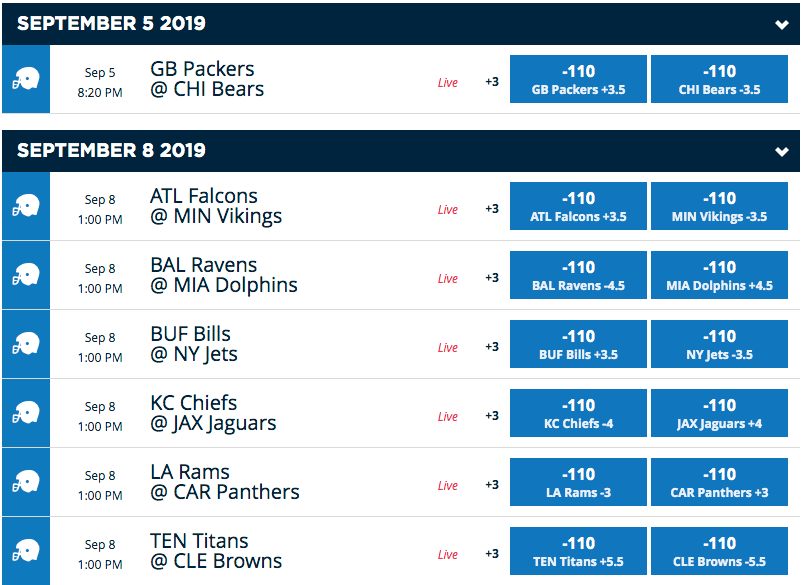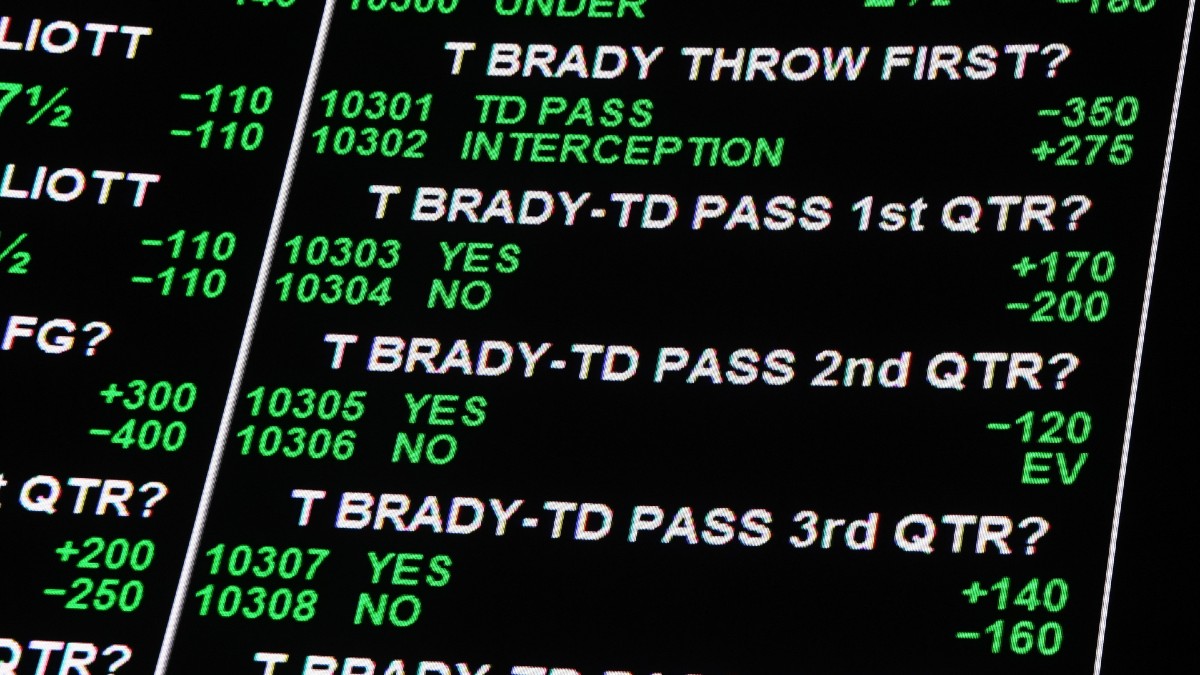Betting Line Meaning
A betting line is a posted number that the online Sportsbook posts for each game in a certain sport. The betting line will have different wager options within the betting line. Bookmakers will post odds on who they think will win the game. The betting line will usually show a favorite and an underdog. The word line, in the language of a sportsbook, can refer to either the odds and/or a point spread in any sports contest. Let’s take a look at an imaginary line the way you’d read it off the board sitting in a Vegas sports betting lounge or on the screen at your online book.
Understanding the different types of betting options is crucial when you’re getting a start as a first-time sports bettor.
The Point Spread: Betting the spread
For those new to sports betting, the point spread is the simplest, most straightforward approach to placing wagers.
Sports books set a predetermined margin of points on a game and a team must win – or not lose – by that set number. That’s why you’ll often hear people say the team won, but they “didn’t cover the spread” so their bet still came up short.
It’s not a matter of a team winning or losing like in a moneyline bet.
For a favorite:Betting Line Meaning Definition
The favorite must win by more than the point spread.For an underdog: The underdog must outright win OR lose by fewer than the point spread.Sports books aren’t in the business of predicting who will win or lose games. Their goal is setting a pre-game point spread with the intention to generate an equal amount of betting action/volume on both sides of the ledger – as much total money being bet on the favorite as on the underdog.
The vast majority of point spread wagers are made on football and basketball because of the proliferation of points that are scored in comparison to sports like baseball and hockey, where 1-0 or 2-1 games aren’t that out of the question or out of the norm. There’s one every night.
For example, the New England Patriots are playing the New York Jets and New England is a 9½-point favorite. Bettors typically have to spend $110 or so to win $100 with sports books, known as “the house edge/advantage.” With a point spread bet, simply having a team win the game isn’t the key. The critical factor to betting a point spread is how much a team wins or loses by. If a wager is placed on New England – “laying” the 9½ points – the Patriots need to win the game by 10 or more points for that bet to pay off. If New England wins 28-20, those betting on the Jets plus 9½ points (points added to their final total) win the bet.
The same general rules apply for basketball and are quite easy to follow because of the inherent simplicity of the bet. When it comes to betting sports like baseball and hockey, the standard bets are made on the “money line” – an established number for both teams to win the game outright.

What makes point spread bets attractive are the fluid nature of each game – it’s a reality show that, when done right, is inexplicable. Games change on one play and momentum is a thing. But, when it comes to point spread betting, you know where you stand at every moment.
For those just starting out, the simplest form of gambling is betting the spread because it’s the easiest to explain and understand, which explains why it is the most popular form of sports wagering.
What is a Money Line or Straight Up Wager?
Betting Line Meaning Line

A Money Line or straight up wager is a bet on the outright winner of the game or event, without any point spread odds. A Money Line better doesn't have to worry about a team winning or losing by a certain number of points.
Oddsmakers still determine a favorite and an underdog by the overall strength of the competitor, but the odds given are based on the amount of money that needs to be put up in order to place the bet.
Example:


The bettor will receive odds that resemble these:
Colts –140
Bears +120
The (-) symbolizes which team is the favorite and the (+) indicates which team is the underdog. So in the above example, the Colts are the favorite and the Bears are the underdog. All the bettor is wagering on is who he or she thinks will win the game.
If one were to bet on the Colts, he or she would have to risk $140 to win $100 (or $105 to win $75; $70 to win $50, etc). If one were to bet on the Bears, he or she would only have to risk $83.33 to win $100 (or $62.50 to win $75; $41.67 to win $50, etc).
So while the Colts are the favorite to win the game, one would have to risk more money if they wanted to bet on them.